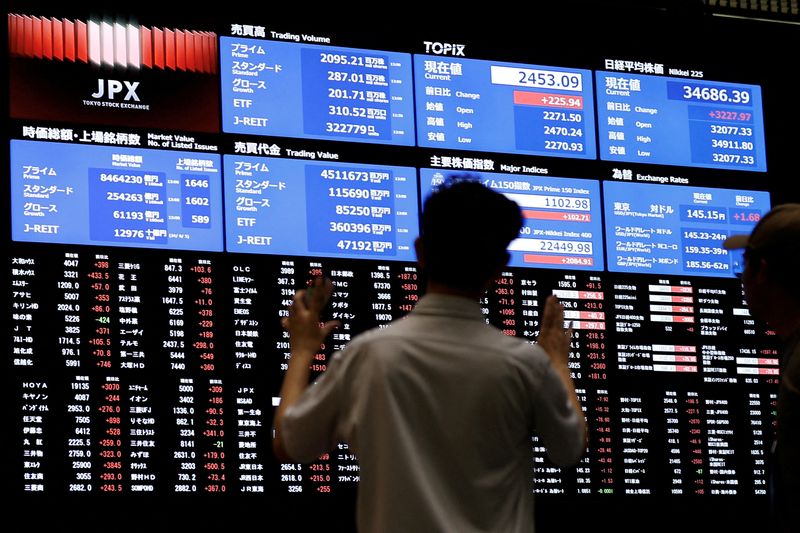By Jamie McGeever
(Reuters) - A look at the day ahead in Asian markets.
A day of general calm across world markets on Thursday that saw the dollar and U.S. bond yields soften and stocks consolidate bodes well for markets in Asia on Friday as attention focuses on political and economic events in Japan.
Voters go to the polls in Sunday's general election, and several recent polls suggest the ruling coalition could lose its parliamentary majority. From a market perspective, this could deprive the Bank of Japan the political stability needed to steer a smooth liftoff from near-zero interest rates.
Tokyo consumer inflation, a leading indicator of nationwide price trends and the main highlight of Asia's economic calendar on Friday, could also give the BOJ food for thought ahead of its policy meeting next week.
Inflation in Tokyo likely undershot the central bank's price target for the first time in five months, according to a Reuters poll, coming in at an annual rate of 1.7%. That would follow a 2.0% rise in September and mark the first time the data misses the BOJ's 2% target since May.
A senior International Monetary Fund official on Thursday said any further rate hikes in Japan should be conducted at a "gradual pace," noting that BOJ moves could impact financial markets of other countries where Japanese investors hold large positions.
Krishna Srinivasan, the director of the IMF's Asia and Pacific Department, also said that most Asian central banks have room to cut rates, as the start of the U.S. easing cycle reduces fears of an unwelcome weakening of their currencies.
What's more, risks to Asia's economic outlook are tilted to the downside, he added.
The Japanese yen recovered some ground on Thursday, clocking its biggest rise in a month and pushing the dollar down to 151.50 yen from Wednesday's three-month high above 153.00.
The yen's recent weakness, however, has lured overseas investors into Japanese markets. Figures on Thursday showed that foreigners bought Japanese stocks for a fourth straight week through Oct. 19, although caution ahead of Sunday's election and upcoming corporate earnings releases tempered the inflows.
Despite the modest reversal on Thursday, the spike in the dollar and U.S. bond yields recently to three-month highs has helped put Asian stocks on course for a third consecutive weekly loss.
Nor have the yen's recent weakness and foreign investor inflow prevented Japanese stocks from losing ground, and the Nikkei goes into Friday's session down more than 2% so far this week.
Elsewhere, industrial production figures from Singapore are expected to show a sharp slowdown in September from unusually strong activity in August. Economists expect year-on-year growth of 3.5%, down from 21%, which was fastest since 2021 and one of the strongest of the past 15 years.
Here are key developments that could provide more direction to markets on Friday:
- Tokyo CPI inflation (October)

- Japan services PPI inflation (September)
- Singapore industrial production (September)